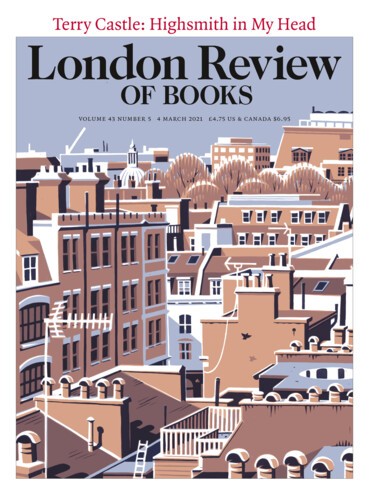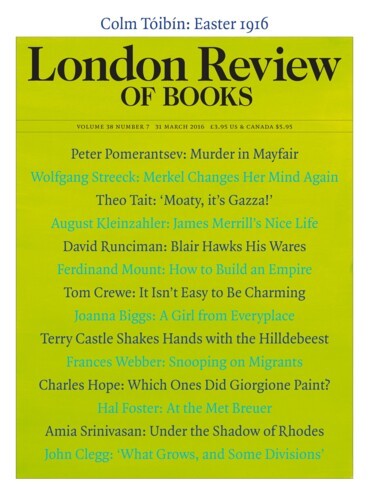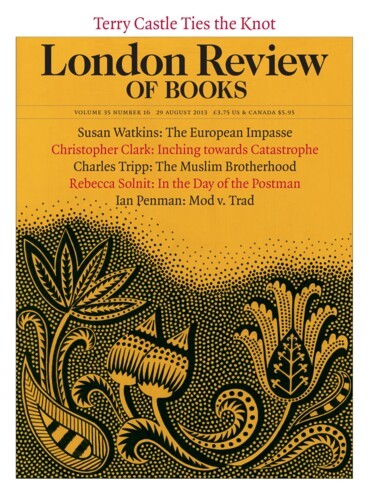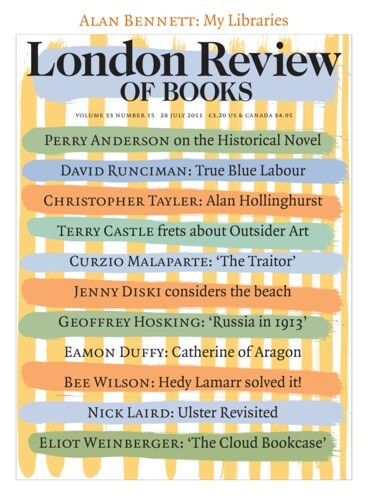Gotcha, Pat! Highsmith in My Head
Terry Castle, 4 March 2021
Consider her brilliant reveals: the slow build-up of mad, off-kilter thoughts; the choking bolus feelings of hatred, fright, revulsion; then the explosive release of force – corporeal, appalling, exquisite – immediately followed by inrushing panic and dread. In the 1950s and 1960s, Alfred Hitchcock was her only rival at capturing such vertiginous changes of state: the lightning-quick slippage from normal to horrific and back again. Back, that is, to a now nightmarish perversion of normal life from which you, the killer, realise you’ll never escape, even should the outrage you’ve just committed go undiscovered. (In classic Highsmith – witness the supremely twisty Ripley novels – even the most frenzied murders sometimes go unrecognised as such.) You’re not dead yet, but you’re unquestionably in hell: for ever. Also indisputable is the fact that Highsmith was able to dramatise the loss of control so shockingly because she knew how it felt. Though not herself a homicidal maniac (as far as one knows), she could imagine what it was like to be one. Her brain had been arranged for it: she had blown out her own frontal lobes early on.





